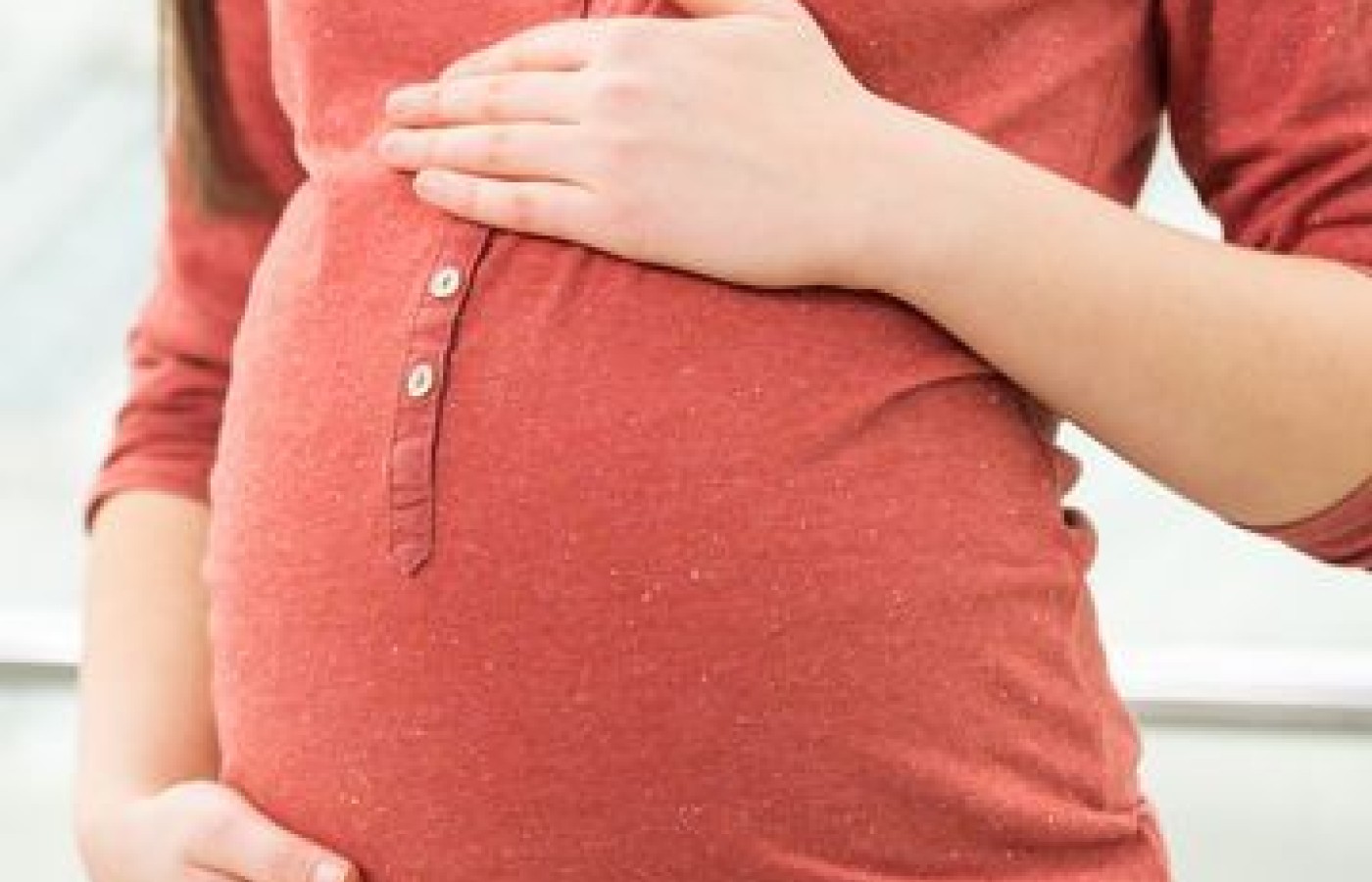The most important relationship I seek to nurture in the treatment room is the one a patient has with their own body. We live in a culture that teaches us to override pain, defer to outside authority, and push through discomfort. Patients often arrive hoping I can “fix” them, but the truth is, we can’t do the work for them. We can offer guidance, insight and support, but healing requires their full participation.
Infertility: Managing Irregular Menses
Infertility is an area where Chinese medicine is particularly helpful. In the main, in women below the age of 38 without organic disturbance, the success rate using TCM (Traditional Chinese Medicine) should exceed 85%. Also, when supporting IVF (in vitro fertilization) procedures, the addition of herbal medicine and acupuncture can double the success rate per procedure. This is significant, because a single procedure might only have a 20% success rate and incorporating Chinese medicine can raise those odds to 40%.
In most infertility cases, regulation of hormones is the key to treatment and success. For modern medicine, this means regulation using exogenous hormones. This does not encourage the ovaries, hypothalamus and pituitary to produce its own hormones, and in fact, may inhibit its production. Chinese medicine, on the other hand, restores and stimulates the natural production of estrogen, progesterone, luteinizing hormone (LH) and follicle-stimulating hormone (FSH). In TCM methodology, this means regulation of imbalances in the liver, kidney and spleen.

In cases of women with normal periods, and in generally good health, it can be tricky for the TCM practitioner to make an accurate differentiation. Better success is possible when we have a situation where the menstrual cycle is disturbed. What I mean here is that when there are irregularities in the timing of the period, TCM can focus and intervene, even without knowledge of specific hormonal imbalances. When a woman comes concerning fertility, and she has irregular menses, we have a specific hook on which to base our therapies, and in these cases, TCM is very successful.
Irregular Menses
A normal period comes regularly between 26 and 30 days, and is neither too heavy nor too light. Irregular menses indicates that the period is too early, too late, or erratic in timing. The coexistence of premenstrual tension or dysmenorrhea factors into our differentiation, but may or may not accompany irregular menses. Differentiation begins with categorizing three types based on the timing.
Early periods (polymenorrhea) are shorter than 21 days. In modern medicine, they are attributed to low levels of progesterone with an early ovulation. In TCM, the important patterns include blood heat (either excess or deficiency), liver stasis transforming into heat, or deficiency of qi.
Late periods (oligomenorrhea) are cycles longer than 35 days. It can also include cases of amenorrhea that are less than six months in duration. In Chinese medicine, differentiations include cold (excess or deficiency), blood deficiency, and qi and blood stagnation.
Erratic periods are irregular and unpredictable, sometimes early, sometimes normal, sometimes late. Often in the management of consistently early or late periods, they become erratic over several months until regularity is achieved. TCM patterns are restricted to liver qi stagnation, or kidney deficiency (yang or yin).
Early Menses
Early menses is divided into four types: blood heat (either excess or deficiency), liver stasis transforming into heat, or deficiency of qi. In the excess-heat type, the bleeding is heavy and is dark red. Other symptoms may include nosebleeds, thirst, irritability, anxiety, restlessness, or insomnia. The tongue is red or reddish with a yellow coat. The pulse is excess and rapid. Here, no herbal product is readily applicable and the patient will need a custom formula, such as Qing Jing Tang ("Clear the Menses Decoction"). This formula consists of sheng di huang (Radix Rehmanniae), di gu pi (Cortex Lycii), mu dan pi (Radix-Cortex Moutan), bai shao (Radix Paeoniae Alba), qing hao (Herba Artemesiae Annuae), huang bai (Cortex Phellodendri), and fu ling (Poria). In heavy bleeding, one may add han lian cao (Herba Ecliptae), di yu (Radix Sanguisorbae), and ce bai ye (Cacumen Platycladi/Biotae).
In the deficiency-heat type, there is lighter bleeding but still a thick bright red blood. The tongue is reddish without any significant coat, and the pulse is thin and rapid, indicating deficiency-heat. Again, there is no specific herbal product that is available. The recommended custom formula is Liang Di Tang ("Double Rehmannia Decoction"). The formula consists of sheng di huang (Radix Rehmanniae), shu di huang (Radix Rehmanniae Praeparata), di gu pi (Cortex Lycii), xuan shen (Radix Scrophulariae), bai shao (Radix Paeoniae Alba), and mai men dong (Radix Ophiopogonis).
For cases of early menses due to liver stasis transforming into heat, the bleeding can be light or heavy, but the blood tends to have clots and there is dysmenorrhea. The tongue is darker, and the pulse is rapid, and especially in the left guan position, wiry. Here, one can use the classical formula Jia Wei Xiao Yao San (for description and availability, see Fratkin, Essential Chinese Formulas, p. 354).
In cases of early menses due to qi deficiency, the bleeding can be light or heavy, but the blood is usually pale and thin. The tongue may be pale, and the pulse weak and deep. Here, one can use the classical formula Gui Pi Tang (Essential Chinese Formulas, p. 400).
Delayed Menses
Delayed menses is divided into four types: cold (excess or deficiency), blood deficiency, and qi and blood stagnation. In the excess-cold type, the bleeding is usually light, but with dark blood, not pale. There are cramps or dull pain in the lower abdomen, relieved by warmth but aggravated by pressure. The tongue is pale, and the pulse in deep and weak. One can use the classical formula Wen Jing Tang (Essential Chinese Formulas, p. 340).
The deficiency-cold type presents as light bleeding with a more pale blood. Abdominal pain is less severe than in the excess-cold type, and is relieved by warmth and pressure. One can also use Wen Jing Tang in this case. Dr. Lifan Liang, in Contemporary Gynecology (p. 29) recommends using a formula not available in product form: Da Ying Jian ("Great Response Decoction"): dang gui (Radix Angelicae Sinensis), shu di huang (Radix Rehmanniae Praeparata), gou qi zi (Fructus Lycii), du zhong (Cortex Eucommiae), hui niu xi (Radix Achyranthis Bidentatae), rou gui (Cortex Cinnamomi), and gan cao (Radix Glycyrrhizae).
Delayed menses due to blood deficiency has light bleeding with pale, thin blood. The tongue is pale, and the pulse is thin. The recommended formula is Ren Shen Yang Ying Tang Tang. (See Essential Chinese Formulas, p. 542).
Finally, for delayed menses due to qi and blood stagnation, one finds the menstrual blood to be dark, often with clots. The tongue is dark or purplish, and the pulse is wiry or choppy. The preferred formula is a custom formula, Jia Wei Wu Yao Tang ("Added Flavors Lindera Decoction"). Ingredients include wu yao (Radix Linderae), mu xiang (Radix Aucklandia), sha ren (Fructus Amomi), xiang fu (Rhizoma Cyperi), bing lang (Semen Arecae), yan hu suo (Rhizoma Corydalis), and gan cao (Radix Glycyrrhizae) with the addition of dang gui (Radix Angelicae Sinensis) and chuan xiong (Rhizoma Ligusticum Chuanxiong). If the practitioner is limited to prepared products, one can use Tian Tai Wu Yao San (Essential Chinese Formulas, p. 284).
Erratic Menses
Again, erratic menses is divided into three types: liver qi stagnation, and kidney deficiency, yang or yin. In liver qi stagnation, bleeding is irregular: sometimes heavy, sometimes light. There may or may not be clots. Liver stasis signs such as breast tenderness and premenstrual tension often co-exist, as well as lower abdominal distension. The tongue is dark or purple, and the pulse is wiry. Here, the preferred formula is Xiao Yao San, taken throughout the month. (See Essential Chinese Formulas, p. 288).
For erratic menses due to kidney deficiency, there is light bleeding, with pale or thin blood. Lower back pain often accompanies menstruation. The pulse is weak and deep. Two kidney types are further differentiated. In kidney yang deficiency, the tongue is pale, moist, and possibly enlarged. Here, one can use kidney yang formulas such as Jin Gui Shen Qi Wan (Essential Chinese Formulas, p. 560), You Gui Wan (Essential Chinese Formulas, p. 564) or Huan Shao Wan (Essential Chinese Formulas, p. 576).
In kidney yin deficiency type, the tongue is thin and dry, and possibly geographic or cracked. You can use either Liu Wei Di Huang Wan (Essential Chinese Formulas, p. 550) or Zuo Gui Wan (Essential Chinese Formulas, p. 554).
A Universal Formula
Dr. Lifang Liang has recommended a formula from 17th century physician Fu Qing-Zhu to address any kind of irregular period presentation, with modifications depending on pattern rather than type. The formula is Ding Jing Fang ("Stabilize Menses Formula") and contains dang gui (Radix Angelicae Sinensis), bai shao (Radix Paeoniae Alba), shu di huang (Radix Rehmanniae Praeparata), chai hu (Radix Bupleuri), shan yao (Rhizoma Dioscoreae), fu ling (Poria), tu si zi (Semen Cuscutae), gan cao (Radix Glycyrrhizae), dang shen (Radix Codonopsis) and ba ji tian (Radix Morindae Officinalis).
In her book, Contemporary Gynecology, Lifan Liang provides specific modifications to this formula for yin deficiency, blood stasis, qi deficiency, qi stasis, blood deficiency, cold blood and blood heat. Dr. Liang also has an excellent book on supportive treatment during in-vitro fertilization using Chinese herbs and acupuncture. The book is IVF and Acupuncture (Blue Poppy Press).



